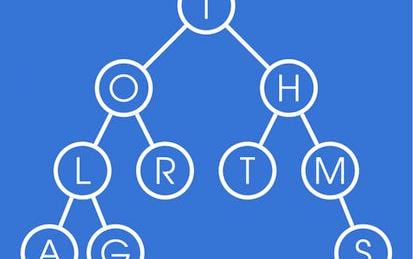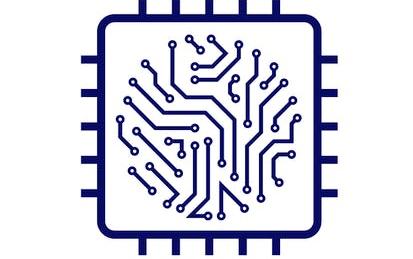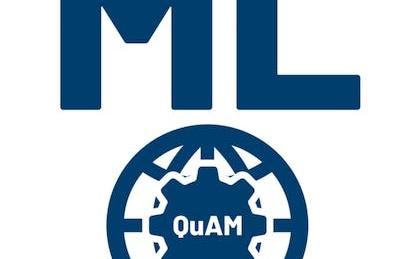

Our Courses

Data Science Foundations: Data Structures and Algorithms
Building fast and highly performant data science applications requires an intimate knowledge of how data can be organized in a computer and how to efficiently perform operations such as sorting, searching, and indexing. …
-
Course by

-
 Self Paced
Self Paced
-
 English
English

Prediction and Control with Function Approximation
In this course, you will learn how to solve problems with large, high-dimensional, and potentially infinite state spaces. You will see that estimating value functions can be cast as a supervised learning problem---function approximation---allowing you to build agents that carefully balance generalization and discrimination in order to maximize reward. We will begin this journey by investigating how our policy evaluation or prediction methods like Monte Carlo and TD can be extended to the function approximation setting.
-
Course by

-
 22 hours
22 hours
-
 English
English

IBM Data Science
Prepare for a career in the high-growth field of data science. In this program, you’ll develop the skills, tools, and portfolio to have a competitive edge in the job market as an entry-level data scientist in as little as 4 months. No prior knowledge of computer science or programming languages is required. Data science involves gathering, cleaning, organizing, and analyzing data with the goal of extracting helpful insights and predicting expected outcomes.
-
Course by

-
 Self Paced
Self Paced
-
 English
English

Enterprise and Infrastructure Security
This course introduces a series of advanced and current topics in cyber security, many of which are especially relevant in modern enterprise and infrastructure settings. The basics of enterprise compliance frameworks are provided with introduction to NIST and PCI.
-
Course by

-
 Self Paced
Self Paced
-
 15 hours
15 hours
-
 English
English

Biology Meets Programming: Bioinformatics for Beginners
Are you interested in learning how to program (in Python) within a scientific setting? This course will cover algorithms for solving various biological problems along with a handful of programming challenges helping you implement these algorithms in Python.
-
Course by

-
 Self Paced
Self Paced
-
 19 hours
19 hours
-
 English
English

Ethics in the Age of AI
As machine learning models begin making important decisions based on massive datasets, we need to be aware of their limitations. In this specialization, we will explore the rise of algorithms, fundamental issues of fairness and bias in machine learning, and basic concepts involved in security and privacy of machine learning projects. We'll finish with a study of 3 projects that will allow you to put your new skills into action.
-
Course by

-
 Self Paced
Self Paced
-
 English
English

Data Structures and Algorithms
Computer science legend Donald Knuth once said “I don’t understand things unless I try to program them.” We also believe that the best way to learn an algorithm is to program it. However, many excellent books and online courses on algorithms, that excel in introducing algorithmic ideas, have not yet succeeded in teaching you how to implement algorithms, the crucial computer science skill that you have to master at your next job interview.
-
Course by

-
 Self Paced
Self Paced
-
 English
English

I/O-efficient algorithms
I/O-efficient algorithms, also known as external memory algorithms or cache-oblivious algorithms, are a class of algorithms designed to efficiently process data that is too large to fit entirely in the main memory (RAM) of a computer. These algorithms are particularly useful when dealing with massive datasets, such as those found in large-scale data processing, database management, and file systems. Operations on data become more expensive when the data item is located higher in the memory hierarchy.
-
Course by

-
 Self Paced
Self Paced
-
 10 hours
10 hours
-
 English
English
Machine Learning with Python
Get ready to dive into the world of Machine Learning (ML) by using Python! This course is for you whether you want to advance your Data Science career or get started in Machine Learning and Deep Learning. This course will begin with a gentle introduction to Machine Learning and what it is, with topics like supervised vs unsupervised learning, linear & non-linear regression, simple regression and more. You will then dive into classification techniques using different classification algorithms, namely K-Nearest Neighbors (KNN), decision trees, and Logistic Regression.
-
Course by

-
 Self Paced
Self Paced
-
 33 hours
33 hours
-
 English
English

AI for Scientific Research
In the AI for Scientific Research specialization, we'll learn how to use AI in scientific situations to discover trends and patterns within datasets. Course 1 teaches a little bit about the Python language as it relates to data science. We'll share some existing libraries to help analyze your datasets. By the end of the course, you'll apply a classification model to predict the presence or absence of heart disease from a patient's health data.
-
Course by

-
 Self Paced
Self Paced
-
 English
English

Data Science Fundamentals
This specialization demystifies data science and familiarizes learners with key data science skills, techniques, and concepts. The course begins with foundational concepts such as analytics taxonomy, the Cross-Industry Standard Process for Data Mining, and data diagnostics, and then moves on to compare data science with classical statistical techniques.
-
Course by

-
 Self Paced
Self Paced
-
 English
English

C Programming: Language Foundations - 2
In this course you will learn to use logical statements and arrays in C. Logical statements are used for decision-making with follow-up instructions, based on conditions you define. Arrays are used to store, keep track of, and organize larger amounts of data. You will furthermore implement some fundamental algorithms to search and sort data. Why learn C? Not only is it one of the most stable and popular programming languages in the world, it's also used to power almost all electronic devices.
-
Course by

-
 Self Paced
Self Paced
-
 14 hours
14 hours
-
 English
English

Blockchain Scalability and its Foundations in Distributed Systems
Blockchain promises to disrupt industries once it will be efficient at large scale. In this course, you will learn how to make blockchain scale. You will learn about the foundational problem of distributed computing, consensus, that is key to create blocks securely. By illustrating limitations of mainstream blockchains, this course will indicate how to improve the technology in terms of security and efficiency.
-
Course by

-
 Self Paced
Self Paced
-
 11 hours
11 hours
-
 English
English

Object Oriented Programming
In this 5-course specialisation, you will develop various C++ programming skills. Rather than building many small programs as you will in other courses, we have taken a different approach: you will create a single, extensive program through the five courses. The program will be a simplified cryptocurrency exchange platform.
-
Course by

-
 Self Paced
Self Paced
-
 English
English

Unsupervised Learning and Its Applications in Marketing
Welcome to the Unsupervised Learning and Its Applications in Marketing course! In this course, you will delve into the fascinating world of unsupervised machine learning and its relevance to the field of marketing. Unsupervised learning is a powerful approach that allows us to uncover hidden patterns and insights from vast amounts of historical data without the need for explicit labels or human intervention.
-
Course by

-
 Self Paced
Self Paced
-
 22 hours
22 hours
-
 English
English

Bioinformatics
Join Us in a Top 50 MOOC of All Time! How do we sequence and compare genomes? How do we identify the genetic basis for disease? How do we construct an evolutionary Tree of Life for all species on Earth? When you complete this Specialization, you will learn how to answer many questions in modern biology that have become inseparable from the computational approaches used to solve them.
-
Course by

-
 Self Paced
Self Paced
-
 English
English

Introductory C Programming
This specialization develops strong programming fundamentals for learners who want to solve complex problems by writing computer programs. Through four courses, you will learn to develop algorithms in a systematic way and read and write the C code to implement them. This will prepare you to pursue a career in software development or other computational fields. Successful completion of this Specialization will be considered by admissions as a demonstration of your skill and enhance your master’s application to Duke’s Pratt School of Engineering.
-
Course by

-
 Self Paced
Self Paced
-
 English
English

AI Workflow: Machine Learning, Visual Recognition and NLP
This is the fourth course in the IBM AI Enterprise Workflow Certification specialization. You are STRONGLY encouraged to complete these courses in order as they are not individual independent courses, but part of a workflow where each course builds on the previous ones. Course 4 covers the next stage of the workflow, setting up models and their associated data pipelines for a hypothetical streaming media company. The first topic covers the complex topic of evaluation metrics, where you will learn best practices for a number of different metrics including regressi
-
Course by

-
 Self Paced
Self Paced
-
 14 hours
14 hours
-
 English
English

Embedding Sensors and Motors
The courses in this specialization can also be taken for academic credit as ECEA 5340-5343, part of CU Boulder’s Master of Science in Electrical Engineering degree. Enroll here. Embedding Sensors and Motors will introduce you to the design of sensors and motors, and to methods that integrate them into embedded systems used in consumer and industrial products. You will gain hands-on experience with the technologies by building systems that take sensor or motor inputs, and then filter and evaluate the resulting data.
-
Course by

-
 Self Paced
Self Paced
-
 English
English

A Complete Reinforcement Learning System (Capstone)
In this final course, you will put together your knowledge from Courses 1, 2 and 3 to implement a complete RL solution to a problem. This capstone will let you see how each component---problem formulation, algorithm selection, parameter selection and representation design---fits together into a complete solution, and how to make appropriate choices when deploying RL in the real world. This project will require you to implement both the environment to stimulate your problem, and a control agent with Neural Network function approximation.
-
Course by

-
 Self Paced
Self Paced
-
 16 hours
16 hours
-
 English
English

Deep Learning and Reinforcement Learning
This course introduces you to two of the most sought-after disciplines in Machine Learning: Deep Learning and Reinforcement Learning. Deep Learning is a subset of Machine Learning that has applications in both Supervised and Unsupervised Learning, and is frequently used to power most of the AI applications that we use on a daily basis. First you will learn about the theory behind Neural Networks, which are the basis of Deep Learning, as well as several modern architectures of Deep Learning.
-
Course by

-
 32 hours
32 hours
-
 English
English

Modern Robotics, Course 3: Robot Dynamics
Do you want to know how robots work? Are you interested in robotics as a career? Are you willing to invest the effort to learn fundamental mathematical modeling techniques that are used in all subfields of robotics? If so, then the "Modern Robotics: Mechanics, Planning, and Control" specialization may be for you. This specialization, consisting of six short courses, is serious preparation for serious students who hope to work in the field of robotics or to undertake advanced study.
-
Course by

-
 Self Paced
Self Paced
-
 22 hours
22 hours
-
 English
English

Machine Learning: Algorithms in the Real World
This specialization is for professionals who have heard the buzz around machine learning and want to apply machine learning to data analysis and automation. Whether finance, medicine, engineering, business or other domains, this specialization will set you up to define, train, and maintain a successful machine learning application. After completing all four courses, you will have gone through the entire process of building a machine learning project.
-
Course by

-
 Self Paced
Self Paced
-
 English
English

Coding for Everyone: C and C++
This Specialization is intended for all programming enthusiasts, as well as beginners, computer and other scientists, and artificial intelligence enthusiasts seeking to develop their programming skills in the foundational languages of C and C++. Through the four courses — two in C, and two in C++ — you will cover the basics of programming in C and move on to the more advanced C++ semantics and syntax, which will prepare you to apply these skills to a number of higher-level problems using AI algorithms and Monte Carlo evaluation in complex games.
-
Course by

-
 Self Paced
Self Paced
-
 English
English

Statistical Mechanics: Algorithms and Computations
In this course you will learn a whole lot of modern physics (classical and quantum) from basic computer programs that you will download, generalize, or write from scratch, discuss, and then hand in. Join in if you are curious (but not necessarily knowledgeable) about algorithms, and about the deep insights into science that you can obtain by the algorithmic approach.
-
Course by

-
 Self Paced
Self Paced
-
 16 hours
16 hours
-
 English
English



